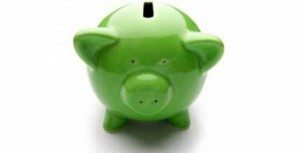
A kid’s bank account is a great way to start teaching your child about money and responsible spending.
But with all the different options available, it can be tough to figure out which account is right for your child. There are few things you need to know about a kid’s bank accounts.
What is a bank account and why do kids need one?
A bank account is a place where people can store their money. Banks will keep your money safe and give you a place to save for the future.
Kids need a bank account so they can learn how to manage their money. A savings account will help them understand how to save money for things they want in the future.
How do I open a bank account for my kid?
You can open a bank account for your child at most banks. To open an account, you’ll need your child’s Social Security number and birth certificate. You may also need to show proof of your own identity, like a driver’s license.
What are the different types of accounts for kids?
There are three main types of accounts for kids:
– Savings account: A savings account is a place to store your money so you can earn interest on it. This is a good option if your child is interested in learning how to save money.
– Checking account: A checking account is a place to store your money and use it to pay for things. This is a good option if your child wants to learn how to manage their money and make payments.
– Joint account: A joint account is an account that you and your child both have access to. This can be a good option if you want to help your child manage their money.
Different types of savings accounts?
There are a few different types of savings accounts, and each one has its own benefits.
– A regular savings account is a good option for children who are just starting to save money. These accounts typically have low interest rates, but they don’t have any fees.
– A high-yield savings account is a good option for children who are looking to grow their money quickly. These accounts typically have higher interest rates, but they may have some fees.
– A Certificate of Deposit (CD) is a good option for children who are looking to save money for a specific goal. These accounts typically have higher interest rates, but they require you to keep your money in the account for a set period of time.
Reviewing kids savings account
You should review your child’s savings account regularly, at least once per month. This will help you ensure that their money is growing and that they’re not experiencing any problems. If you notice any issues, be sure to talk to your child about them so they can learn from the experience.
How to make the most of your savings account?
Here are a few tips to help you make the most of your savings account:
– Review your account regularly: Reviewing your account regularly will help you ensure that your money is growing and that you’re not experiencing any problems.
– Consider a high-yield savings account: A high-yield savings account can help you grow your money faster. Just be sure to check for fees before you open an account.
– Set financial goals: Setting financial goals can help you stay motivated to save money.
– Invest in a CD: A CD can help you earn higher interest on your savings. Just be sure to keep your money in the account for the length of the term.
– Withdraw money wisely: When you withdraw money from your savings account, be sure to only take out what you need. Withdrawing large amounts of money can eat into your savings and slow down your progress.
– Talk to a financial advisor: If you’re having trouble saving money or managing your account, talking to a financial advisor can help. They can offer advice and guidance on how to best grow your savings.
How does a bank account work and what are the benefits of having one for kids?
When you open a bank account, the bank will give you a debit card. This is a card that you can use to withdraw money from your account or make payments.
The benefits of having a bank account for kids include:
– Learning how to manage money: A bank account can help your child learn how to budget and save their money.
– Building credit: A savings account can help your child build good credit. Good credit can help your child get loans for things like cars and homes in the future.
– Earning interest: When you deposit money into a savings account, the bank will pay you interest on that money. This means that your child’s money will grow over time.
What are some things to consider before opening a bank account for my child?
There are a few things to consider before opening a bank account for your child:
– The fees: Some banks charge fees for kid’s accounts. These fees can include monthly service fees, ATM fees, and overdraft fees.
– The minimum balance: Some banks require you to keep a minimum balance in your account. This is the amount of money that you must have in your account to avoid paying a fee.
– The interest rate: The interest rate is the amount of money that the bank pays you on your deposited money. Higher interest rates mean that your child’s money will grow faster.
Which account is right for your child?
The right account for your child depends on their age, interests, and needs.
– If your child is under the age of 18, you’ll need to open a joint account. This will allow you to help your child manage their money.
– If your child is interested in learning how to save money, a savings account is a good option.
– If your child wants to learn how to make payments and manage their money, a checking account is a good option.
Choosing the right bank account for your kid can be tough. But with a little research, you can find an account that’s right for your family.
What documents do you need to open an account for your child?
The documents you will need to open an account for your child includes:
– Your child’s Social Security number
– Your child’s birth certificate
– Proof of your own identity (driver’s license, etc.)
These requirements may vary depending on the bank you choose.
Once you have these documents, you’re ready to open an account for your child.
How to teach your child about money management and responsible spending habits?
There are a few things you can do to teach your child about money management and responsible spending habits:
– Help them set financial goals: Teaching your child to set financial goals can help them learn how to save their money.
– Show them how to budget: Helping your child create a budget can teach them how to manage their money.
– Teach them about credit: Credit is an important part of adult life. Teaching your child about credit can help them understand how to use it responsibly in the future.
– Help them make wise spending choices: You can help your child make wise spending choices by teaching them about needs and wants.
How can parents help their kids manage their bank account effectively and responsibly?
There are a few things parents can do to help their kids manage their bank account effectively and responsibly:
– Help them choose the right account: There are a lot of different bank accounts out there. Helping your child choose the right account can help them avoid fees and grow their money.
– Teach them about money management: Teaching your child about money management can help them make responsible decisions with their money.
– Help them set financial goals: Setting financial goals can help your child learn how to save their money.
– Monitor their activity: Monitoring your child’s activity can help you catch any mistakes they make. This can also help you teach them about responsibility and accountability.
What should parents do if their child experiences problems with their bank account or having trouble in their personal finance?
If your child experiences problems with their bank account or runs into financial trouble, the best thing to do is to talk to them about it. Help them understand what happened and why it was a problem. Then, help them come up with a plan to avoid the same problem in the future. You can also contact the bank to see if they can help resolve the issue.
Conclusion
Opening a bank account for your child is a great way to teach them about money management. It’s important to choose the right account and teach your child about responsible spending habits. If you have any questions or concerns, don’t hesitate to contact your bank.
Read more:
Kid’s bank account 101: what you need to know






